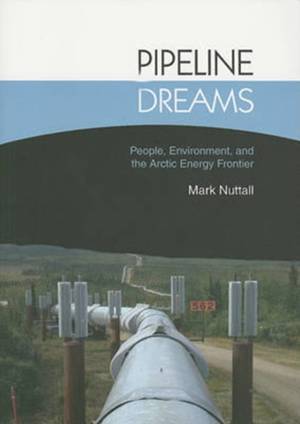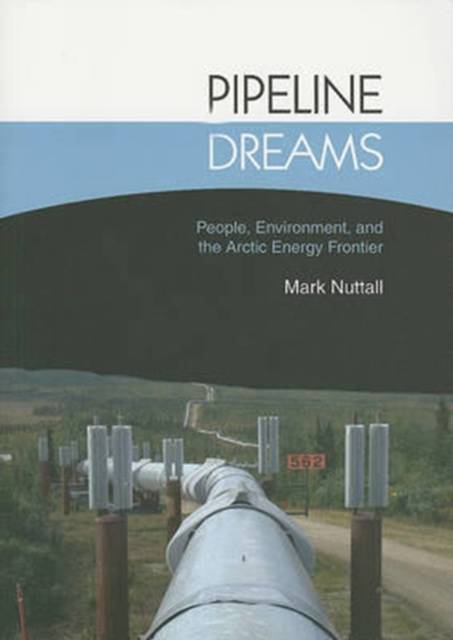
- Afhalen na 1 uur in een winkel met voorraad
- Gratis thuislevering in België vanaf € 30
- Ruim aanbod met 7 miljoen producten
- Afhalen na 1 uur in een winkel met voorraad
- Gratis thuislevering in België vanaf € 30
- Ruim aanbod met 7 miljoen producten
Omschrijving
Interest in the Arctic as one of the world's last energy frontiers is increasing. The indigenous peoples of the circumpolar North have long been involved in struggles to make sense of, adapt to, and negotiate the impacts and consequences of resource development, but they have also been involved in struggles to gain some measure of control over development as well as to benefit from it.
With a focus on the North American Arctic, Pipeline Dreams discusses how dreams of extracting resource wealth have been significant in influencing and shaping relations between indigenous and non-indigenous peoples, as well as for the opening up of northern frontier regions to economic development. Pipeline Dreams looks at the emergence of the circumpolar North as an imagined hydrocarbon province and, through a detailed discussion of plans to explore for oil and gas and to build pipelines across the Arctic and Subarctic lands, it discusses a number of case studies from Canada and Alaska, as well as from other circumpolar regions, which illustrate some of the diverse perspectives, interests and concerns of indigenous peoples.
The book considers and reflects upon the idea of the Arctic as a resource frontier and the concerns expressed by a variety of groups and commentators over the social and environmental impacts of oil and gas development, as well as the opportunities that oil and gas activities may bring to both the long-term viability of indigenous and local communities, and to the sustainability of indigenous and local livelihoods, cultures, and societies.
Specificaties
Betrokkenen
- Auteur(s):
- Uitgeverij:
Inhoud
- Aantal bladzijden:
- 200
- Taal:
- Engels
- Reeks:
Eigenschappen
- Productcode (EAN):
- 9788791563867
- Verschijningsdatum:
- 28/02/2011
- Uitvoering:
- Paperback
- Formaat:
- Trade paperback (VS)
- Afmetingen:
- 147 mm x 208 mm
- Gewicht:
- 317 g

Alleen bij Standaard Boekhandel
Beoordelingen
We publiceren alleen reviews die voldoen aan de voorwaarden voor reviews. Bekijk onze voorwaarden voor reviews.











